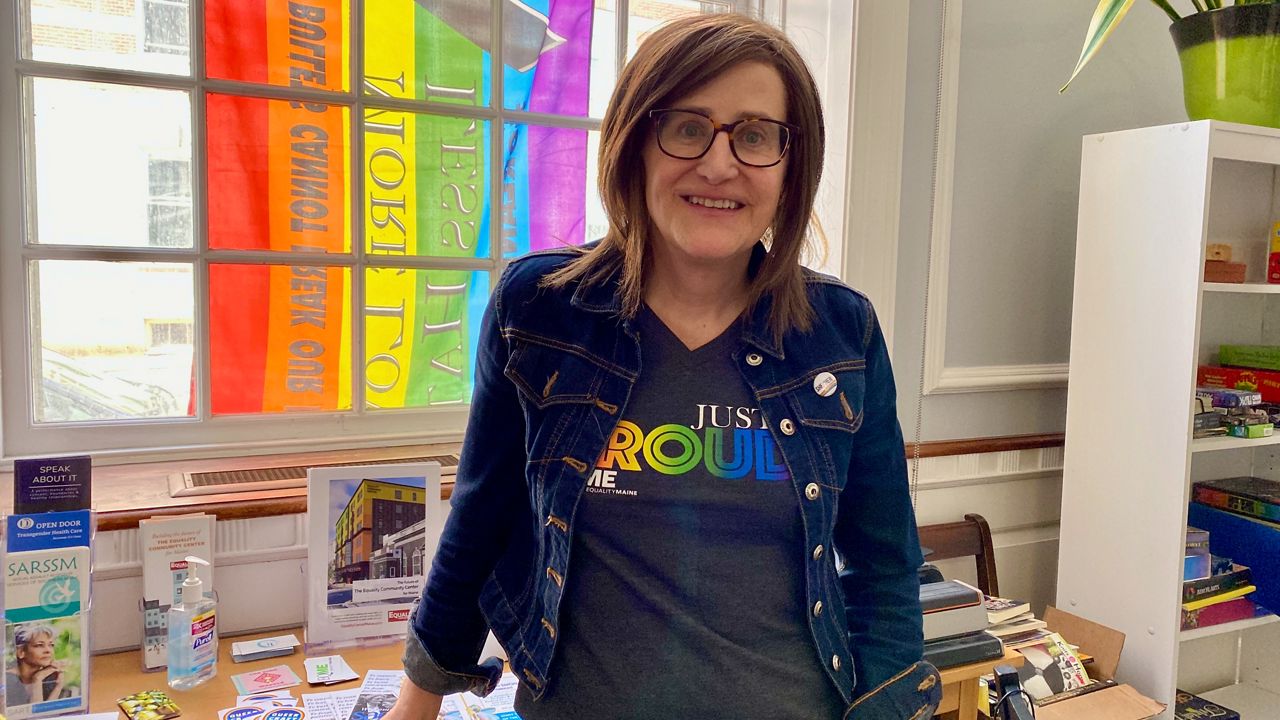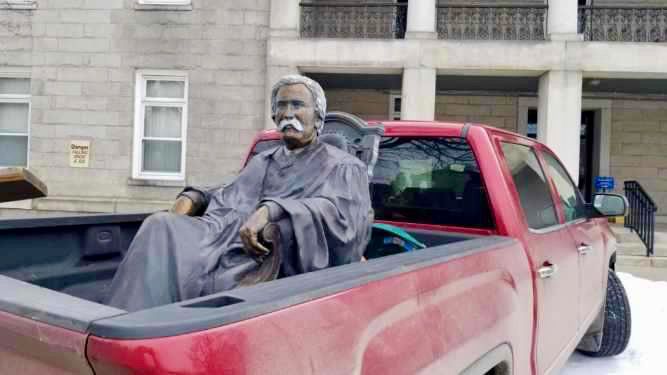After she lost her teaching job 10 years ago, Gia Drew volunteered on the campaign to bring marriage equality to Maine.
Little did she know 10 years later she’d be leading the state’s largest and most powerful LGBTQ group — EqualityMaine.
“I’ve met thousands of Mainers,” she said Friday. “It’s been really exciting to, in my work, travel to every county and meet with people and talk about the issues that are important to them and how do they connect with supporting the LGBTQ community.”
Drew takes over for Matt Moonen, a former Maine House majority leader who is again running for the Legislature. Drew’s promotion — during LGBTQ Pride Month — comes at a time when she and her organization will face national headwinds that began shortly after the 2015 Supreme Court decision to legalize same-sex marriage.
While Mainers approved marriage equality at the ballot box in 2012 — following efforts by EqualityMaine to have 130,000 conversations with voters — other states had not laid the groundwork for the expansion of marriage rights.
“Some folks saw it as an attack on their morals,” Drew said during an interview at the Equality Community Center in Portland. “Maybe some folks thought they were losing some of their own rights. There was a quick pushback in 2015. We saw the opposition pivot quickly to attacking transgender people right after that.”
As a result, legislation such as the so-called “bathroom bill” in North Carolina began to pop up, targeting transgender people who wanted to be able to use the facility that matched their identity. This year, 238 bills have been introduced across the country to restrict LGBTQ rights, according to NBC News. Most target trans people.
The issue came to the forefront in Maine recently when the Maine Republican Party highlighted a clip about what it means to be transgender on the Maine Department of Education’s website. The campaign ad against Gov. Janet Mills, a Democrat running for reelection, stated that the video could have been shown to children as young as kindergarten age.
The state immediately pulled the video from the website, with Mills saying she supported the department’s decision to remove the content.
Drew said EqualityMaine wasn’t consulted about the video, nor was it a part of the decision to have it withdrawn. Moving forward, Drew said her group would be happy to provide information about how best to discuss transgender issues in schools.
“We hear from teachers,” she said. “Teachers are like ‘how do I understand what it means to be LGBTQ? How do I talk about it with parents who are looking for support? How do I talk about it with kids who have questions?’”
Drew encouraged those with questions to attend a Pride Month celebration to learn more or to visit websites such as Gender Spectrum, a group that specializes in helping families with transgender youth.
A native of Boston, Drew was a high school teacher and track and field coach in Maine for about 10 years before she transitioned. She lost her job during a budget crisis, although she can’t help but think her transition led at least in part to the decision to let her go.
“There really hadn’t been a teacher in a public school transition on the job, ever,” she said. “People really didn’t know what to do.”
As an athlete and a coach, Drew is also uniquely positioned to talk about the recent controversies surrounding transgender athletes. With six brothers and sisters, Drew said sports played a major role in their lives.
As a country, Americans love sports, whether it’s watching the Super Bowl or the Celtics in the NBA Finals, she said. And with women in particular, it’s taken decades to gain parity with men.
“For most kids, being on a sports team is about being with your friends, learning some social skills, learning about teamwork,” she said. “To push in there, these ideas that trans girls are somehow doing this to do something other than that, is ludicrous. It’s hurtful.”
When it comes to priorities, EqualityMaine is in the process of updating its strategic plan, something it hasn’t done since 2013. Drew said it will include an emphasis on reaching marginalized groups, such as Black, Indigenous, poor and transgender Mainers to ensure they have a seat at the table.
In addition to lobbying lawmakers to add LGBTQ people to the state’s nondiscrimination laws and win marriage equality, the group offers educational conferences for teachers and a leadership academy for LGBTQ teens, among other programs and community events. The group merged with SAGE two years ago, expanding services for elder LGBTQ Mainers.
One of the things Drew is most excited about is the Equality Community Center, which serves as a space for racial justice groups, a Cambodian support network, Democracy Maine, Maine TransNet and EqualityMaine.
“I think historically we all kind of stayed in our own lane and did our own thing,” she said. “For us to really unify and get things done, learning and working together is where our future is.”





